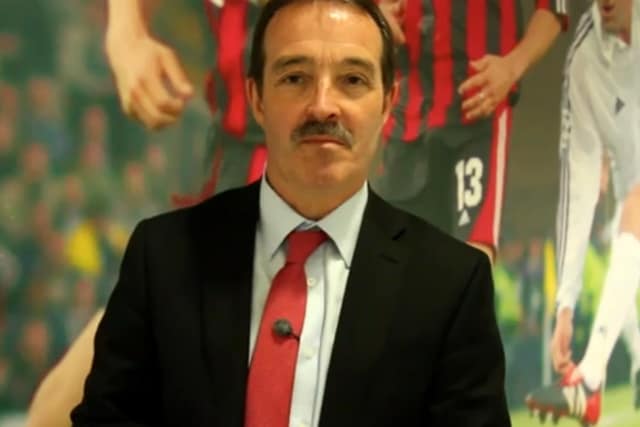Can Euro 2020 football revitalise Europe?
The Euro 2020 football championship will be held in 13 cities in 13 countries, which were recently announced. Professor Grant Jarvie, lead educator on The University of Edinburgh’s free online course “Football: More than a Game” discusses why these cities were chosen and the impact football could have on them.

13 cities from Amsterdam to St Petersburg in 13 countries from Azerbaijan to Spain will host the Euro 2020 football championships. The stadium with the greatest capacity, of 90, 652, is London’s Wembley stadium, which will host the final and the semi-finals. The smallest stadium, with a capacity of 38,190, is Copenhagen’s Parken Stadium, which will host three group stage games and one last 16 match.
This format for the tournament is a one-off, to mark the 60th anniversary of UEFA. It’s designed to take the action to places that could not stage the tournament in its entirety.
Why were these cities chosen?
The diplomacy stakes were crucial, with London allegedly being selected for the final “by acclamation,” after the German FA stood aside in exchange for English support for its Euro 2024 bid.
Lobbying by Sir Alex Ferguson, the former Manchester United manager, was deemed to be an important factor in securing Hampden Park, which is featured in our course trailer below. The Glasgow stadium will host three group stage matches and one last 16 match.
The fact that UEFA is hosting the tournament in part to reflect its history and heritage influenced Ferguson to emphasise Hampden’s own history and heritage – in 1960 one of the most famous matches in European football, Real Madrid v Eintracht Frankfurt, was played out at the stadium. Madrid won 7–3 in front of a crowd of over 127,000 people.
The financial incentives were also crucial, with Dublin City claiming that it is set for a financial boost of up to €100m, after UEFA confirmed the Aviva Stadium will host four Euro 2020 fixtures. Dublin’s inclusion in the tournament coincides with the 100th anniversary of the Football Association of Ireland.
At the time of the bid, the conflict between Russia and Ukraine prompted the Russian Minister of Sport, Vitaly Mutko, to thank UEFA members for voting for the Zenit Arena in St Petersburg. He stated: “We are really happy that the world of sport and politics are kept separate.”
The Italian football federation’s President argued, following the selection of the revamped Olympic Stadium in Rome, that this was recognition for the effort his country had put into battling football hooliganism and crumbling stadiums.
What will the impact of the tournament be?
From history and heritage to finance to diplomacy to regeneration, the rationale for cities and countries wanting to host or be part of hosting football tournaments vary from city to city and context to context.
Major sporting events are chased and secured by a number of places in the belief that reputations can be enhanced and economies stimulated.
Few economic studies measure the “feel-good” factor associated with major football events. “Psychic income” takes many forms, including a sense of community and common purpose, as well as sporting success.
The indirect benefits include potential post-event use of land and buildings; infrastructure legacies; labour market impacts; property price increases; and potential global positioning.
Some believe that sport – and in this case football – can assist with European integration and stimulate cohesion at a time when Europe is being challenged by politics, unemployment, and a lack of economic cohesion and growth. Whether it can, remains to be seen.
Want to learn more about why countries bid for major footballing events – and what they get out of them? Join the free online course “Football: More than a Game.” It starts 20 October and lasts 6 weeks.




